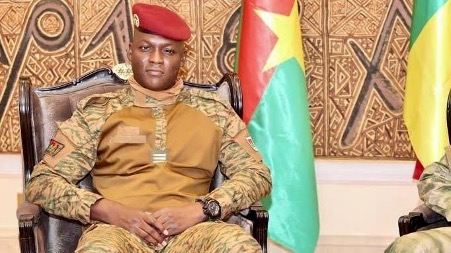Capt Ibrahim Traoré: The Rising Star of Burkina Faso
At the age of 37, Captain Ibrahim Traoré has emerged as a compelling figure on the African political stage, capturing the imaginations of many in his quest to liberate Burkina Faso from perceived Western control. His dynamic leadership is characterized by a pan-Africanist vision that resonates with those who admire revolutionary icons like Thomas Sankara, Burkina Faso’s former president and Marxist hero often referred to as “Africa’s Che Guevara.”
Beverly Ochieng, a senior researcher at Control Risks, notes the extensive appeal of Traoré’s message throughout the continent. She states, “His statements capture the current mood in Africa, where many question the prevailing relationship with the West while recognizing the persistent poverty in a resource-rich land.”
A Shift in Alliances
Since leading a coup in 2022, Traoré has shifted his country’s alliances away from France, Burkina Faso’s former colonial ruler, towards Russia, evident through a strong partnership that includes the presence of Russian paramilitary forces. His administration has introduced left-leaning economic policies, including the establishment of state-owned mining operations. This strategy obligates foreign companies to provide a 15% share to the Burkinabé government, along with skills training for locals.
Economic Reforms and Relations
In late April, the Russian mining company Nordgold received a permit for its latest venture in Burkina Faso’s gold sector. As part of Traoré’s vision for a “mineral revolution,” the government plans to build a gold refinery and create national gold reserves for the first time.
| Economic Indicators | 2023 | 2024 |
|---|---|---|
| Inflation Rate | 0.7% | 4.2% |
| Extreme Poverty Rate | 26.9% | 24.9% |
| Projected Economic Growth | N/A | Strong |
The Challenge of Popularity
Despite Traoré’s soaring popularity, he faces significant challenges in dealing with a decade-long Islamist insurgency that continues to exacerbate ethnic tensions in the region. His administration has also enforced strict measures against dissent and criticism, targeting opposition figures and civil organizations.
According to Enoch Randy Aikins from the Institute for Security Studies, Traoré’s reforms have positioned him as an inspirational leader across Africa. “He is quickly becoming one of the continent’s favorite presidents, appealing to the youth,” Aikins remarks.
The Changing Political Landscape
Ghanaian security analyst Prof Kwesi Aning attributes this dynamics to a broader shift within African politics, particularly in West Africa. He cites research that shows a decline in support for democracy due to unmet expectations regarding job creation and education reform. “Traoré offers an alternative vision, resonating with a young population that desires change,” he explains.
As he rallies support around his vision of sovereignty, Traoré’s growing influence signifies a deeper transformation in West African politics, moving away from former colonial powers and toward new alliances that promise autonomy and dignity.


